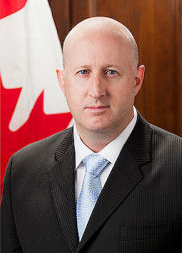Tripoli, 9 February 2013:
The President of the General National Congress Mohamed Magarief gave a keynote address to the nation on TV . . .[restrict]this evening, Saturday, ahead of the second anniversary of the revolution on 17 February, in a move to reassure the public about the direction Congress and the government area taking. The television appearance is seen as a response to criticism from political parties meeting in Benghazi earlier today about the competence of Congress and the government.
In his speech on Wataniya TV, he said that the anniversary of the revolution, was an occasion to unite Libyans not divide them.
He focused on the need to raise living standards and create prosperity in the country but he also warned that it would be difficult to meet the planned deadlines for writing the constitution.
He continued that the rebuilding of the police and national security was one of the most important factors in assuring economic and social stability.
In relation to raising living standards, he said that the Local Administration Law, Number 59/2012, had to be enacted as soon as possible so as to enable local municipalities to be properly funded and provide necessary services to people.
He expressed the hope that the public understood that while Libya was rich and the authorities were committed to giving them as much funding as they could to raise living standards, it was not possible simply to hand out the nation’s cash. There was a responsibility to invest in infrastructure and human development.
He also stressed that institutions needed to be set up to expose corruption, present as well as past. He warned that there was still a culture of corruption among many groups in the country. Its elimination required strict laws and penalties and had to be applied to all.
On the subject of national reconciliation, he said that Congress had supported a series of conferences to discuss this subject.
Congress, he said, was working on a huge range of subjects in order to ensure a responsible working state, from activation of the judiciary, through national reconciliation to housing and infrastructure projects, to name but a few.
He said that there were problems delaying the work of moving Libya ahead, not least the fact that the Constitutional Declaration had not clearly drawn the line between the work of Congress and of government.
He stressed that Congress wanted to press ahead and keep to the tough timelines for a new constitution but the decision to elect the Constitutional Commission had inevitably meant delays because there needed to be consultations to hear what the public wanted.
‘We are working on the restructuring of the Electoral Commission and its mandate to conduct elections to the Constitutional body”, he said. Congress had decided to form a committee for the preparation of the electoral law. “We hope that we can create it in a short time.”
[/restrict]









